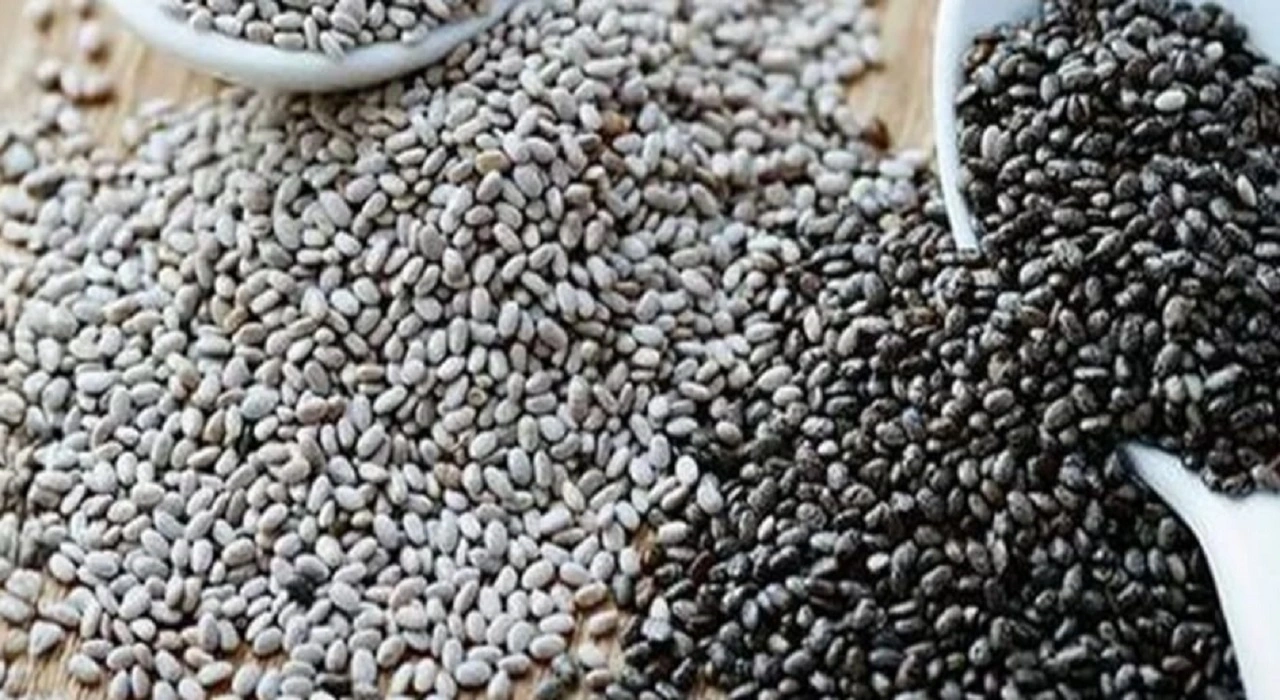Introduction
In the world of superfoods, chia seeds have gained huge popularity and for good reason! These tiny seeds are packed with nutrients and offer amazing health benefits. Whether you’re trying to eat healthier, lose weight, or boost your energy, adding seeds to your diet can be a simple and powerful change.
Let’s explore the benefits, uses, and nutrition of chia seeds in an easy and friendly way.
What Are Chia Seeds?
Chia seeds come from the Salvia hispanica plant, native to Mexico and Guatemala. They were a staple food for the Aztecs and Mayans, valued for their ability to provide long lasting energy. In fact, the word “chia” means “strength” in the ancient Mayan language.
Today, seeds are considered a modern-day superfood due to their rich nutritional profile.

Nutritional Powerhouse
Chia seeds are incredibly nutrient dense despite their small size. Just 2 tablespoons (about 28 grams) provide:
- Fiber: 11 grams
- Protein: 4 grams
- Omega-3 Fatty Acids: 5 grams
- Calcium: 18% of the RDI
- Magnesium: 30% of the RDI
- Antioxidants: Powerful compounds that fight free radicals
This makes chia seeds one of the best plant based sources of omega-3s and fiber, which are essential for heart and gut health.
Top 9 Health Benefits of Chia Seeds
1. Supports Digestive Health
Thanks to their high fiber content, chia seeds help keep your digestive system regular. They absorb water and form a gel-like texture, which adds bulk to stool and helps prevent constipation.
2. Boosts Heart Health
The omega-3 fatty acids in chia seeds help reduce inflammation, lower blood pressure, and decrease bad cholesterol (LDL). This supports a healthier heart.
3. Aids in Weight Loss
Chia seeds can absorb up to 10–12 times their weight in water, making you feel full for longer. This may reduce your overall calorie intake and help with weight management.
4. Regulates Blood Sugar Levels
Chia seeds may slow down how fast your body absorbs sugar, helping to prevent spikes in blood glucose. This is especially helpful for people with type 2 diabetes.
5. Improves Bone Health
Chia seeds are rich in calcium, magnesium, and phosphorus three key nutrients for maintaining strong bones.
6. Enhances Energy and Endurance
Many athletes include chia seeds in their diets. The combination of protein, fats, and fiber gives you a steady energy release, ideal for workouts or busy days.
7. Good for Skin and Hair
The antioxidants and healthy fats in chia seeds help fight aging, reduce skin inflammation, and support shiny, strong hair.
8. Promotes Healthy Metabolism
The nutrients in chia seeds, especially B-vitamins and fiber, help support metabolic functions and may improve fat burning during physical activity.
9. Supports Mental Clarity
Omega-3s are essential for brain health. Adding seeds to your diet may help boost focus, memory, and mental clarity.
How to Use Chia Seeds in Your Diet
One of the best things about seeds is how versatile they are. You don’t need to grind or cook them, and they have a mild flavor that fits into many recipes.
Here are some fun and easy ways to eat chia seeds:
- Chia Pudding: Mix 3 tablespoons of seeds with 1 cup of milk (or plant-based milk), sweeten with honey, and let it sit overnight. Add fruits or nuts in the morning.
- Smoothies: Add a tablespoon of seeds to your smoothie for an energy and fiber boost.
- Oatmeal or Yogurt: Sprinkle seeds on top for extra texture and nutrition.
- Baking: Mix them into muffins, cookies, or bread for a healthy twist.
- Energy Bars: Combine seeds with nuts, dried fruits, and honey to make homemade energy bars.
- Thickener: Use soaked seeds to thicken soups, sauces, or even jam.
Are There Any Side Effects?
Chia seeds are safe for most people when consumed in moderation. However, some people may experience:
- Digestive issues: If you’re not used to high fiber, start with a small amount to avoid bloating or gas.
- Choking risk: Always soak chia seeds in water or another liquid before eating. Dry seeds can expand in your throat and cause a blockage.
- Allergies: Though rare, seed allergies can occur.
If you’re on blood pressure or blood thinning medication, consult your doctor before eating large amounts of chia seeds.
Frequently Asked Questions (FAQ)
1. How much seeds should I eat per day?
A safe and healthy amount is 1–2 tablespoons (15–30 grams) per day. Start with a small amount and increase gradually.
2. Can I eat seeds raw?
Yes, but it’s better to soak them in water or another liquid to help your body digest them more easily and avoid choking.
3. Do seeds help with weight loss?
Yes, their high fiber and ability to absorb water can help you feel full longer, reducing cravings and calorie intake.
4. Are seeds good for diabetics?
Seeds can help control blood sugar levels and improve insulin sensitivity, making them a good choice for people with diabetes.
5. Are seeds better than flax seeds?
Both are great sources of omega-3 and fiber. Seeds don’t need to be ground and have a longer shelf life, while flax seeds may offer slightly more lignans (antioxidants).
Final Thoughts
Chia seeds may be small, but they’re incredibly powerful. Rich in nutrients, antioxidants, and fiber, they can easily become a staple in your daily diet. Whether you want to lose weight, boost your energy, or improve your heart health, chia seeds can be your go to superfood.
Start slow, experiment with recipes, and enjoy the many health benefits of this amazing seed.